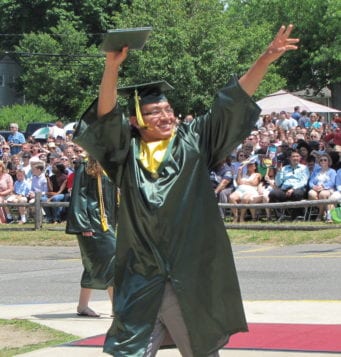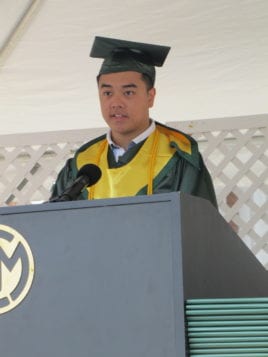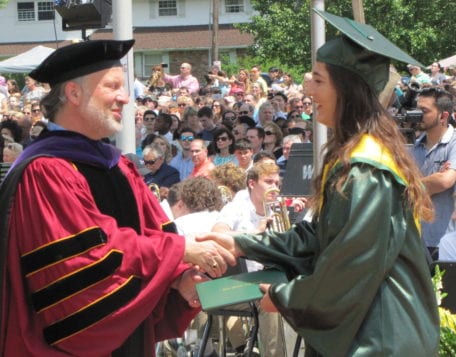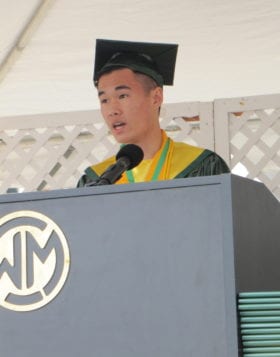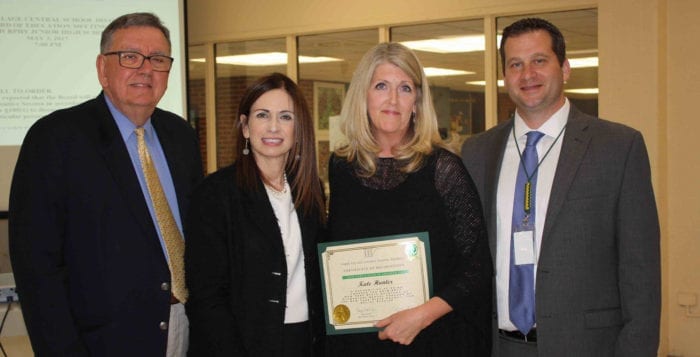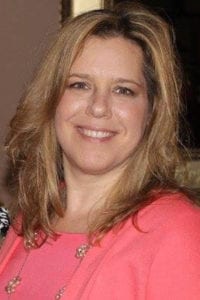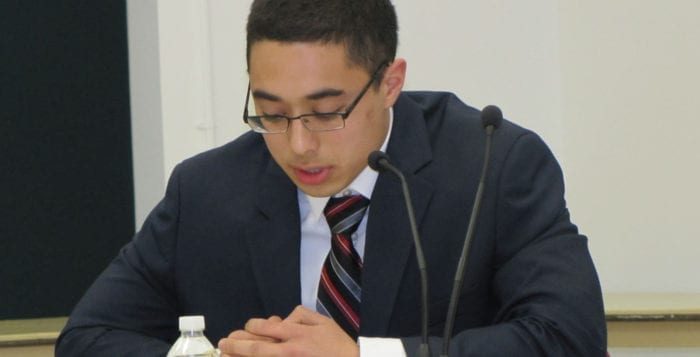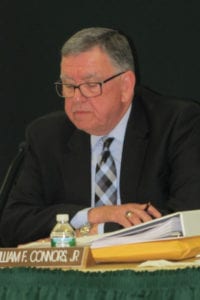By Andrea Paldy
Three Village residents said “yes” to the proposed $215 million budget for the 2019-20 school year Tuesday.
The usually sparsely attended meeting to certify the budget vote drew a number of parents, students and community members who wanted to voice concerns about a possible staffing change in health and athletics.
As expected, incumbent Jonathan Kornreich and newcomer Vinny Vizzo, who ran uncontested for two school board seats, were elected for three-year terms.
Of the 2,087 votes cast, 1,559 voted in favor of the budget and 528 voted against it.
Next year’s budget stays within the 2.53 percent cap on the maximum allowable tax levy increase and requires no cuts to programs or staffing for budgetary reasons, district officials have said.

The $158.9 million tax levy makes up the bulk of the district’s revenue. Funding from the state, which includes building aid, is $46.6 million. State aid, not including money for capital improvements, increased by $287,729. Jeff Carlson, assistant superintendent for business services, said this is consistent with the 0.8 percent average increase in aid since 2009.
The district will earn about $6.2 million in revenue from other sources such as tuition from school districts whose students attend Three Village schools, school-age child care and other district-run programs and enrichment. A sum of $3 million from the district’s fund balance account has also been budgeted as revenue.
A new source of revenue in the coming year will be Patriots Plus, a tuition-based, half-day enrichment program to extend the day for students who attend the district’s free prekindergarten — also half-day. With a fee of $500 a month, the program will be self-sustaining, Carlson said.
The prekindergarten curriculum, currently offered at Nassakeag Elementary, will expand to all five of the district’s elementary schools in the fall, at no additional cost to the district.
Next year, Three Village will also add a sixth-grade guidance counselor to circulate among the five elementary schools, and the high school will offer a new musical theater class.
Potential changes to staffing are the result of enrollment and student requests, Carlson said. Even so, changes would be small — possibly a reduction of two full-time equivalents at the elementary level and two to three FTEs at the secondary level, he said.
School board
Kornreich, chair of the school board’s audit committee, has been a trustee since 2008. “I’m appreciative to have the opportunity to represent the community and am looking forward to working with a board that puts the needs of children first,” he said Tuesday night.
Earlier this year Vizzo, after 34 years as a teacher and administrator in the district, retired from his position as principal of R.C. Murphy Junior High School. When he officially begins his term on the board this July, he will assume the seat vacated by Angelique Ragolia.
“In my new role as board trustee, I look forward to working with my board colleagues to sustain the excellence of our district and will continue to advocate for all students,” he said in an email.
Administration
While attendees of Tuesday’s meeting awaited the election results, parents, coaches, students and alumni gathered to speak on behalf of Peter Melore, executive director health, physical education, recreation & athletics for the district. They expressed concern that he may not be returning to his position next year.
Superintendent Cheryl Pedisich said in a statement, “We certainly value and respect the feedback of our community. However, we are unable to comment on personnel issues.”
In other news, Karen Mizell was named the principal of Setauket Elementary School, and Deana Rinaldi Spanos was appointed as assistant principal of the school.




